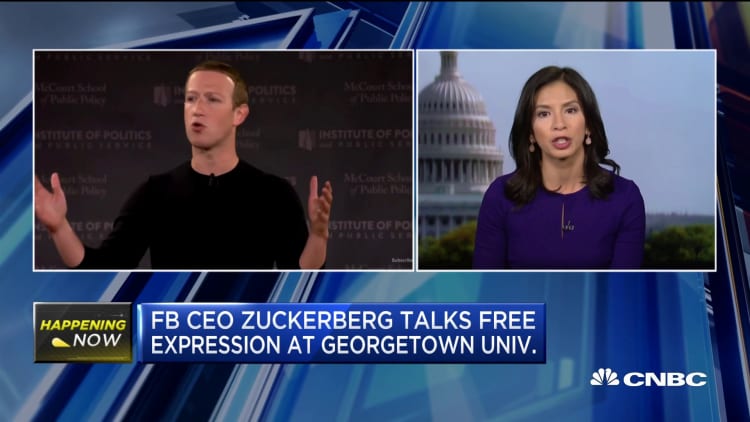Democratic Sens. Mark Warner of Virginia and Richard Blumenthal of Connecticut and Republican Sen. Josh Hawley of Missouri introduced a bill Tuesday to require the largest social media platforms to give users a way to easily move their data to another service.
The proposed ACCESS Act would apply to platforms with products or services with over 100 million monthly active users in the United States. In addition to Facebook's core platform, the legislation would also hit two of its key products, Facebook Messenger and Instagram. Google's YouTube would hit the threshold as well.
"Social media has enormous benefits," Warner said in a statement announcing the bill. "But, as we've seen, the tremendous dominance of a handful of large platforms also has major downsides — including few options for consumers who want to use social media to connect with friends, store their photos or just watch cat videos, but who face a marketplace with just a few major players and little in the way of real competition."
The lawmakers' plan comes amid heated debate over whether big tech companies should be broken up to help foster competition. Last month, Hawley met with Facebook Chief Executive Mark Zuckerberg in Washington and asked him directly to sell Instagram and WhatsApp.
"Sell them right now and show that you have confidence in your core product, in the core Facebook product," Hawley recounted to reporters after that meeting. "Prove that you don't have to buy companies to innovate, that you can still design stuff at Facebook."
Hawley said Zuckerberg was not receptive. But lawmakers hope the new bill could open the market to smaller players and give them a chance to capture users from established companies. Critics argue that users often feel locked into a particular platform because switching services is frustrating and time-consuming. Streamlining that process could give them a way out.
"Your data is your property. Period," Hawley said in a statement. "Consumers should have the flexibility to choose new online platforms without artificial barriers to entry."
The bill would mandate that tech companies allow users to retrieve their personal data in a structured and machine-readable format. They would also have to maintain transparent technical interfaces and allow competing platforms to access them. The proposal would let users work with third parties to update and manage their account and privacy settings.
Facebook has said it also supports the concept of data portability as a way to give users choice and enable developers to innovate and compete. But in an op-ed earlier this year, Zuckerberg argued that transferring data also requires "clear rules about who's responsible for protecting information when it moves between services" — rules that Washington would need to write.
"Regulation should guarantee the principle of data portability," Zuckerberg wrote in The Washington Post in March. "This is important for the Internet — and for creating services people want."
In a statement to CNBC, Facebook's Vice President of U.S. Public Policy Kevin Martin echoed Zuckerberg's earlier comments on data portability.
"We believe people should be able to move their data from one service or app to another," Martin said. "We look forward to continuing our work with Sen. Warner and his colleagues, the Data Transfer Project and others on this important principle."


